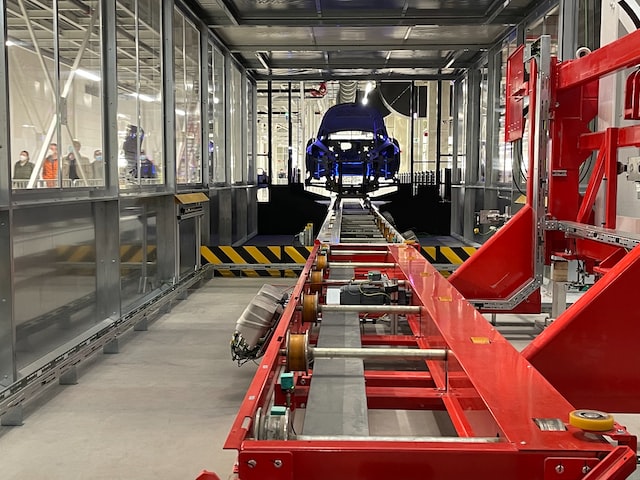In October 2022, China shocked the automotive industry after surpassing Germany to become the second-largest auto exporter. The country also left behind other industry giants such as the United States and South Korea. China’s car sector has progressed impressively and rapidly but this evolution may bring fresh conflicts between the country and its partners.
Bloomberg called the takeover a watershed moment that could transform the global car sector. The media warned, however, this triggers growing tensions between China and its partners, as well as its rivals.
Overtaking Germany, the U.S., and South Korea, China’s car exports are currently only after Japan despite lack of global awareness. These figures foreshadow a dramatic but subtle transition for the global car sector as a new serious rival now challenges the established auto titans.
In an interview with CNBC, Tesla’s CEO Elon Musk admitted that EV brands from China could be Tesla’s most formidable competitors.
China has successfully captured the Middle East and Latin American markets. Meanwhile in Europe, a number of remarkable brands include Tesla and regional names currently owned by China, such as Volvo, MG, and Dacia. The iX3, BMW’s best-selling electric vehicle globally, is currently produced exclusively in China and shipped to Europe.
A slew of unique Chinese brands, including BYD and Nio, are also on the rise, with plans to dominate the electric vehicle market. BYD, which is backed by Warren Buffett, has gained clients in affluent countries such as Australia.
Europe, Asia, and Latin America are primary targets. China’s brands have displayed their products at auto shows across Europe since the early 2000s.
Initial efforts failed to meet the safety standards but increased automation and standardization placed safety concerns in the past. As vehicle quality improved over the past decade, Chinese cars began to pass European safety tests and emissions standards.
This rapid expansion driven by competitive pricing may provoke conflict in Europe. According to Agatha Kratz, director at Rhodium Group, it could prompt the European Union to turn to trade protectionism in order to assist its domestic automobile sector.







